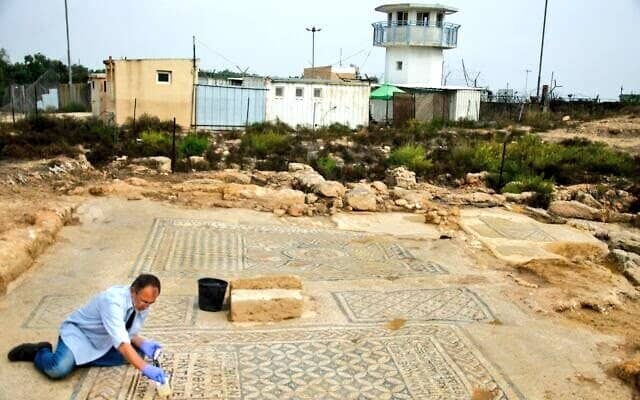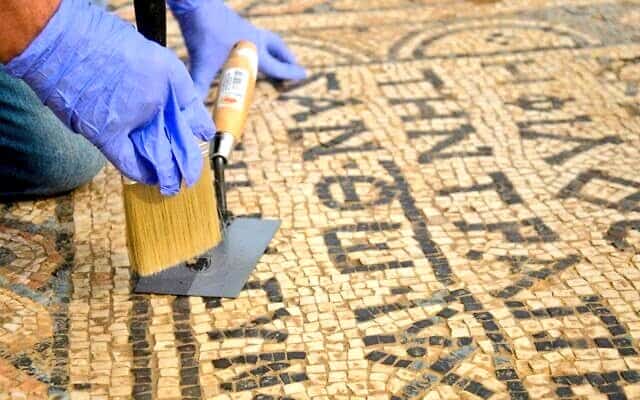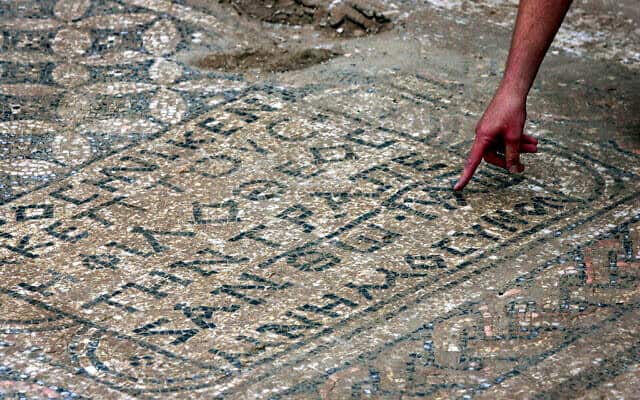A controversy has erupted among archaeologists over the fate of an ancient Christian mosaic written in Greek that contains an early reference to Jesus as God.
The mosaic, which is located near the site believed to be the prophesied Armageddon, could be uprooted and loaned to the Museum of the Bible in Washington, a US museum that has been criticized for its past acquisition practices. Israeli officials are currently considering this proposal, highlighting the growing ties between Israel and evangelical Christians in the US, who provide political support, tourism revenue, and other benefits to Israel.
The Megiddo Mosaic is part of what is thought to be the world’s oldest Christian prayer hall, situated in a Roman-era village in northern Israel. It was discovered by Israeli archaeologists in 2005 during an excavation conducted as part of a prison expansion project. This prison, located a mile south of Tel Megiddo, is surrounded by a white steel fence topped with barbed wire and is used for detaining Palestinian security inmates.

The site where the prison stands is believed to be the location of a historic battle site and has a significant role in Christian theology. It is mentioned as the backdrop for the final battle between good and evil, known as Armageddon, which some Christians, particularly evangelicals, view as a precursor to the Second Coming of Christ and the establishment of God’s kingdom. For these believers, the Megiddo Mosaic holds great significance as it represents their hopes for ultimate justice.

The Israel Antiquities Authority (IAA) will make a decision on the proposed loan in the coming weeks after consulting with an advisory body. The IAA argues that relocating the mosaic is necessary to protect it from future construction at the prison. The mosaic features Greek inscriptions, including an offering "To God Jesus Christ."
The Museum of the Bible has faced criticism since its opening in 2017 for its acquisition practices and promotion of an evangelical Christian political agenda. In 2018, it had to return an ancient Mesopotamian tablet looted from Iraq and admit that some Dead Sea Scroll fragments in its collection were modern forgeries. Thousands of looted antiquities seized from the museum’s founder, Steve Green, were also returned to Iraq by American authorities. If the mosaic loan is approved, it would further strengthen the ties between Israel and the museum, which already sponsors archaeological projects in Israel and has a gallery curated by the IAA. The museum also plans to host a lecture series featuring IAA archaeologists.

